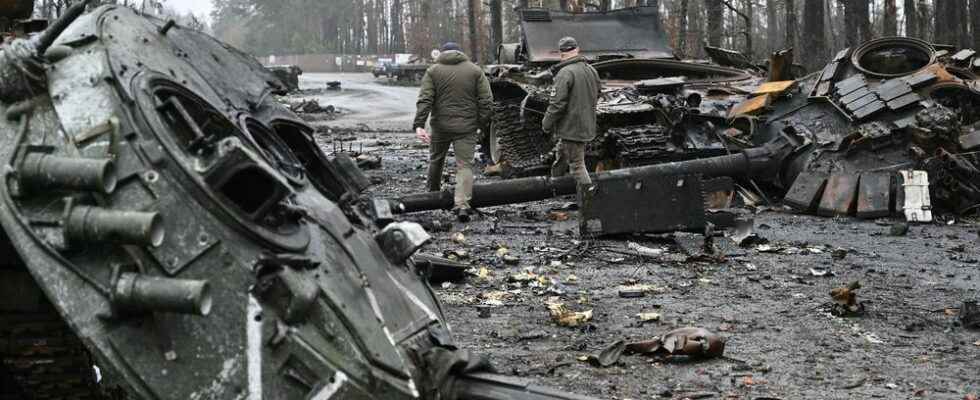More than 37,000 dead according to the Ukrainian general staff, and around 25,000, according to British Defense Minister Ben Wallace. In either case, the number of Russian soldiers killed in Ukraine would already exceed the number of Soviet soldiers killed in Afghanistan (15,000), in a decade of war in the 1980s. “There is a there is a real risk for Moscow of running out of trained and effective men,” said Samantha de Bendern, Russia researcher at Chatham House, a London think tank.
On the ground, these losses are already beginning to be felt. The day after the capture of the Lugansk region by Russian forces, Vladimir Putin himself declared that the units that took part in the offensive should “rest”, the time to “rebuild their combat capabilities”. It is still necessary, for that, to find new blood. A task all the more complex that there were already in recent years “structural difficulties in recruiting into the Russian army”, underlines Vincent Tourret, researcher specializing in military issues at the Foundation for Strategic Research.
Consequence: Russia is trying by all means to expand its reservoir of mobilized men. On May 28, Putin signed a law raising the age limit for joining the army from 40 to 50, even opening the way to active service for men up to 65. At the same time, Moscow has more than doubled the pay of its troops to 170,000 rubles (2,840 euros) per month – more than three times the average Russian salary – not to mention other bonuses based on performance on the ground. Three-month contracts have also multiplied, compared to the usual three years.
Ukrainian soldiers walk between Russian tanks destroyed during fighting in Dmytrivka (west of kyiv), April 2, 2022.
afp.com/Genya SAVILOV
One way, among other things, to push the conscripts – who, officially, are not sent to the Ukrainian front – to enlist in the army at the end of their military service. “In the regional employment centers of the Russian Federation, more than 22,200 vacancies of servicemen under contract appeared,” July 9 said. on Telegram the Ukrainian Center for Combating Disinformation, which is part of the National Security and Defense Council. Among these offers, positions as snipers, gunners or instructors.
“Big tactical problems”
At the same time, Moscow would resort to less traditional recruitment processes. The British Ministry of Defense mentioned this Tuesday cases of “recruitment of personnel in Russian prisons for the private military company Wagner”, adding that “if this information is confirmed, it probably indicates difficulties in replacing the large number of victims.” Three days earlier, the Russian human rights site Gulagu.net alerted to the recruitment of “about 300 convicts” in a penitentiary center in Adygea, where former law enforcement officers are imprisoned.
“This shortage of men poses major problems for certain tactical maneuvers. Russia, for example, lacks infantry to protect its tanks, which makes them vulnerable to Ukrainian ambushes and partly explains the high loss rate among its armored vehicles, explains Vincent Tourret. It also limits Russia’s ability to increase its territorial gains, insofar as the conquered areas require men to pacify them, who are, de facto, no longer available to be sent to the front.”
What temper the bellicose rhetoric of Putin, who, on July 7, had affirmed that Russia had “not yet started serious things” in Ukraine. To repopulate his increasingly sparse troops, the head of the Kremlin has so far refused to order a general mobilization. This would look like an admission of failure for what remains officially a “special military operation”.
“Beyond the political risk linked to the unpopularity of such a decision, a general mobilization would also have a significant impact on the Russian economy which would find itself deprived of a large part of its workforce”, points out Yohann Michel, researcher on defense issues at the International Institute for Strategic Studies. “It is also not guaranteed that the Russian army has enough personnel, and in particular officers, to supervise and train the men thus mobilized.”
